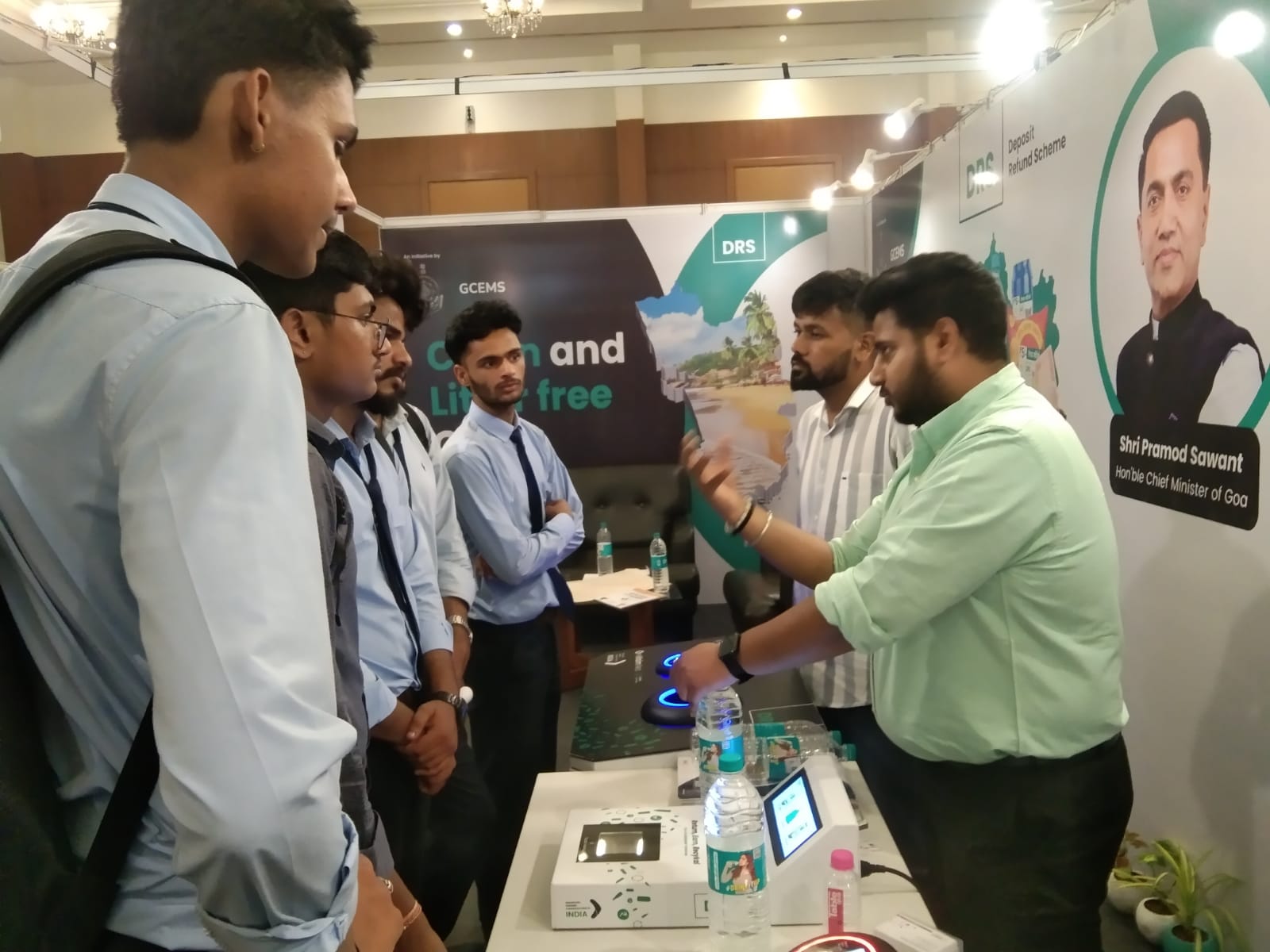
Udaipur. The three-day Ujjwal Rajasthan 2.0 Exhibition, being organized by Visual Maths Institute at Hotel Inder Residency, witnessed a remarkable footfall on its second day. Farmers, students, entrepreneurs, and citizens from all walks of life thronged the venue, pushing the visitor count beyond 10,000 by the second day itself.
Institute Director Vanish Gupta informed that Udaipur MP Dr. Manna Lal Rawat and City MLA Tarachand Jain visited the exhibition, interacted with representatives of Central and State Government departments, and praised their initiatives. Gupta added that the exhibition is serving as a vital bridge, connecting farmers, students, entrepreneurs, and the general public with various government schemes and policies.
On Friday, key dignitaries included MP Manna Lal Rawat, MLA Tarachand Jain, BJP General Secretary Deepak Sharma, Narayan Chaudhary (Aadhar Foundation), and social worker Raghuveer Kumar Verma. The guests visited several stalls and engaged with departmental officers.
Prominent departments showcased included CSIR, Tamil Nadu, Chhattisgarh, Tripura Tourism, CIPET, RIICO, National Sampling Survey, COIR, KVIC, NJB, NERAMAC, Department of Atomic Energy, and Agharkar Research Institute. These interactions provided farmers, students, and entrepreneurs with deeper insights into new opportunities and government support mechanisms.
The exhibition is emerging not just as a platform for information exchange but also as a strong medium to take government initiatives directly to the people. With the participation of more than 50 ministries and departments, including Goa Climate Change Department, LIC of India, Tea Board of India, and ECGC Limited, the event has gained further significance.
Goa’s DRS Project Gains Spotlight
One of the highlights of Ujjwal 2.0 was the Deposit Refund Scheme (DRS) presented by Goa Government’s representative, Yash. Under this eco-friendly initiative, consumers purchasing QR-coded products such as water bottles or chips packets can return the used items to authorized dealers and instantly receive a partial refund.
For instance, a ₹30 water bottle purchased through QR code payment would fetch an immediate ₹10 refund when returned after use. The scheme also incentivizes public participation, as even if a discarded wrapper or bottle is picked up and returned by someone else, they too can avail the refund benefit.
Currently operational in Uttarakhand’s Char Dham and Himachal Pradesh, this scheme is expected to be launched in Rajasthan soon. If implemented nationwide, the initiative could play a pivotal role in preserving environmental balance while encouraging public responsibility.